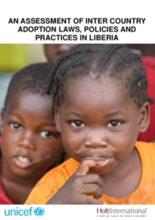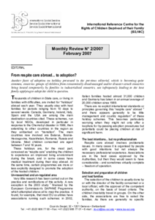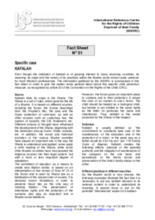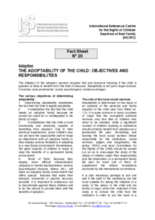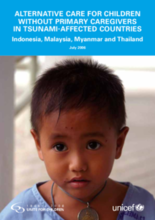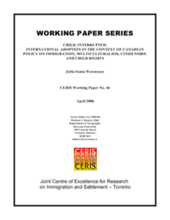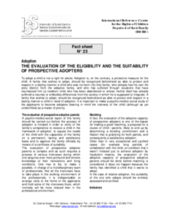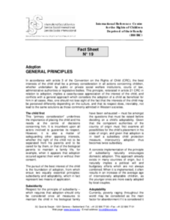Displaying 631 - 640 of 661
This report presents the findings of an assessment conducted between 8 July and 22 August 2006 that gathered and analyzed information on inter-country adoption to support strengthening Liberia’s adoption laws and develop operating guidelines for adoption agencies.
This study by Shihning Chou, Kevin Browne and Melanie Kirkaldy investigated whether intercountry adoption agencies on the internet upheld the principles of the UN Convention of the Rights of the Child (UNCRC 1989) and the Hague Convention (1993).
An 8-page document containing articles and updates from ISS/IRC.
Information gathered by the ISS/IRC on the Muslim practice of Kafalah, which serves as a form of long-term fostering and de-facto adoption.
This document presents the full policy on the alternative care of children in Cambodia.
A 2-page fact sheet that discusses the conditions under which a child may or may not be eligible for adoption. Discusses legal implications and the role of local social services.
An assessment of alternative care responses for children without primary caregivers in tsunami-affected regions of Malaysia, Myanmar, Indonesia, and Thailand. Includes good practices, recommendations, and detailed country reports.
This paper examines how international adoption fits within the legal and conceptual framework of Canadian policy and legislation and international treaties to which Canada is a party.
A short 2-page fact sheet on how to evaluate the suitability of a family that wishes to adopt a child.
A 2-page fact sheet outlining the general priniciples to be taken into account regarding international adoption. Discusses the "adoptability" of children who have not lost their parents, but are abandoned or made vulnerable by poverty.

